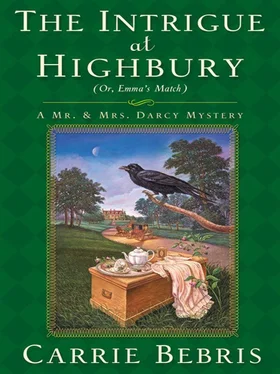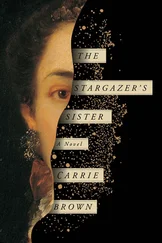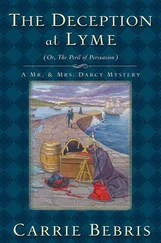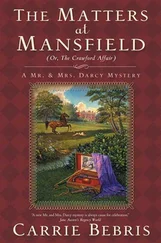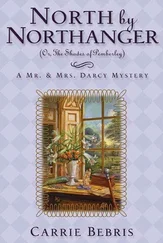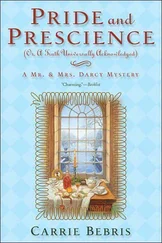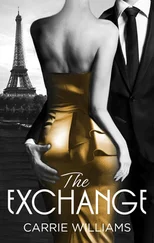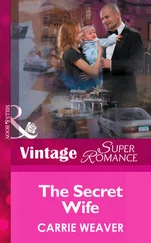Mr. Knightley dipped his pen again and looked to them both. “I shall require a description of the items if we are to have any hope of recovering them.”
“The christening clothes are a beautiful set,” Elizabeth said. “An embroidered gown of cream satin, trimmed with silk braid and silk ribbon ties. There is also a long pinner bib with Hollie point lace, and a lace-edged cap.”
“The signet ring is gold, inscribed with the initials A.F.,” Darcy added. The letters stood for Anne Fitzwilliam, the name Darcy’s mother had borne before her marriage. Upon Anne de Bourgh’s marriage to Colonel Fitzwilliam, the name had become hers, and Darcy had thought the ring ought to be, as well. Now the cherished baptismal set and ring were in the possession of conscienceless thieves with no value for their history or appreciation of their worth. Both Darcy and Elizabeth were deeply disturbed by the theft.
They provided a few more particulars. When they had done, Mr. Knightley returned the quill to its stand. His countenance, sober since their interview had commenced, grew more grim.
“Until we know more about the highwaymen, I am afraid I cannot be optimistic about your belongings being recovered,” he said. “I do, however, pledge to do all I can. In the morning, I would like you to accompany the constable, Mr. Cole, to the area on the London road where you encountered Miss Jones. Perhaps daylight will reveal clues as to the identities of these bandits.”
The butler entered. “Mr. Perry has returned, sir.”
“Thank you. I shall attend him directly.” Mr. Knightley rose. “I will send someone now to the Jones farms to learn what we can, but then I must excuse myself to address another matter before I can discuss this one with you further.” He withdrew his watch from the pocket of his waistcoat. “The hour is grown quite late. I hope you do not intend to continue your travels tonight?”
“No, we plan to take a room at the Crown Inn. Our servants and remaining luggage were to meet us there.”
“I am afraid they undoubtedly found the Crown full. The assembly that was breaking up as you arrived here included many guests who have taken rooms there.”
“Is there another inn?”
“Unfortunately, no. We are a small village.” He paused. “But a hospitable one, I like to believe. Allow me to offer you accommodation here.”
“We do not wish to intrude on your celebration,” Elizabeth said.
“Not at all. I am sorry to say that the celebration reached a premature end. The dinner honored friends who recently wed, and the groom’s uncle unexpectedly died not long before your arrival.”
Darcy now understood the odd hush that had enveloped the crowd as it departed. “Surely you do not want strangers among you at such a time.”
“Half the guests are strangers to me — friends of the bride and groom. Your presence will be no intrusion, and I insist upon extending you a kinder welcome to Highbury than did Miss Jones. Permit me to send for your things at the Crown. In the morning, we can discuss your incident in greater detail and attempt to locate your stolen belongings.”
Mr. Knightley summoned a servant and instructed him regarding the arrangements. “And send a man to Hartfield to ensure that Mr. Woodhouse reached home safely,” he added.
“Now,” he said, leading the Darcys out of the library, “let us find Mrs. Knightley so that she can make your acquaintance.”
As they passed through the cloisters once more, Darcy mentioned the agricultural book he had seen on Mr. Knightley’s desk. “I have recently been reading Stuart myself, and am not certain I agree with all of his recommendations. Perhaps after more urgent business has been resolved, we can exchange opinions of his theories.”
Mr. Knightley appeared pleasantly surprised by the suggestion. “I should like that very much. Few among my acquaintance, save my steward, enjoy discussing such issues as much as I do.”
“Mr. Darcy has the same difficulty,” Elizabeth said. “Though, while we were in London, he managed to find enough gentlemen of similar interests at Lord Chatfield’s dinner party that they spent half the evening discussing husbandry.”
“It was not half the evening.”
She chuckled. “Tell that to the wives.”
Darcy addressed Mr. Knightley. “And none of those gentlemen had read Stuart’s book.”
Mr. Knightley had followed the marital exchange with interest. “You are acquainted with the Earl of Chatfield?”
“Indeed, I have the honor of calling him a friend,” Darcy said.
“As do I, though we missed each other the last several times I was in town. I begin to believe he knows absolutely everybody.”
Darcy was inclined to agree. The earl liked nothing better than to collect a group of diverse individuals around his dining room table to see what sort of conversation resulted, and in all of the parties Darcy had attended, he had never dined with the same group of people twice. His lordship belonged to several learned societies, and counted members of still more among his seemingly endless connexions. Men of arts and letters and science, men of medicine and law, military men and men of God — from artists to zoologists, philanthropists to philosophers, one could never predict whom one might encounter at a gathering hosted by Lord Chatfield. For all his intellectual curiosity, however, the earl was a discriminating judge of character, and the fact that Chatfield included Mr. Knightley among his friends further reassured Darcy of the magistrate’s reliability.
When they reached the main hall, they found not Mrs. Knightley, but a gentlemanlike man about Mr. Knightley’s age, carrying an apothecary’s bag.
“Mr. Perry, I am glad you were able to return so quickly,” Mr. Knightley said. “I will join you in a few minutes. First, however, can you visit the servants’ hall? Mr. and Mrs. Darcy’s coach was robbed, and their groom and footman were struck unconscious. They are awake now, but we should like them examined.”
“My goodness! You were not yourselves injured, I hope?”
After the Darcys gave their assurances, Mr. Knightley directed a passing footman to accompany the apothecary to the servants’ hall. He then turned back to Mr. Perry. “When you have done downstairs, a servant will escort you to Mr. Churchill’s chamber. I will meet you there. Do you require additional assistants?”
“For Mr. Churchill? No. I shall conduct only a preliminary examination here. Should we believe a more thorough autopsy is warranted, the remains can be moved to my office and a surgeon summoned.”
The word “autopsy” commanded Darcy’s attention. Apparently, the apothecary’s patient was the deceased uncle, and there had been something peculiar about his demise.
As Mr. Perry headed for the servants’ hall, Mr. Knightley regarded the Darcys apprehensively. “I wish Mr. Perry had exercised more caution in his speech just now,” he said. “The circumstances of Mr. Churchill’s death were a bit unusual, but not a general cause for concern. If you could refrain from mentioning the autopsy before anyone else, I would be most obliged.”
Darcy perfectly comprehended the magistrate’s position: Mr. Knightley did not want to create panic or invite rampant speculation whilst he had yet to determine whether there was anything about which to panic or speculate. Nor did he want to compromise the coroner’s ability to fully probe questions raised by the postmortem examination.
“Unfortunately, Mrs. Darcy and I have found ourselves called upon to investigate several suspicious deaths, more than one of which proved to be murder.” The incidents were not subjects he and Elizabeth were themselves in the habit of discussing with others, particularly someone with whom they were barely acquainted, but he wanted to assure Mr. Knightley that he recognized what was at stake. “We understand the importance of maintaining silence on such matters, and you may depend upon ours regarding Mr. Churchill.”
Читать дальше
